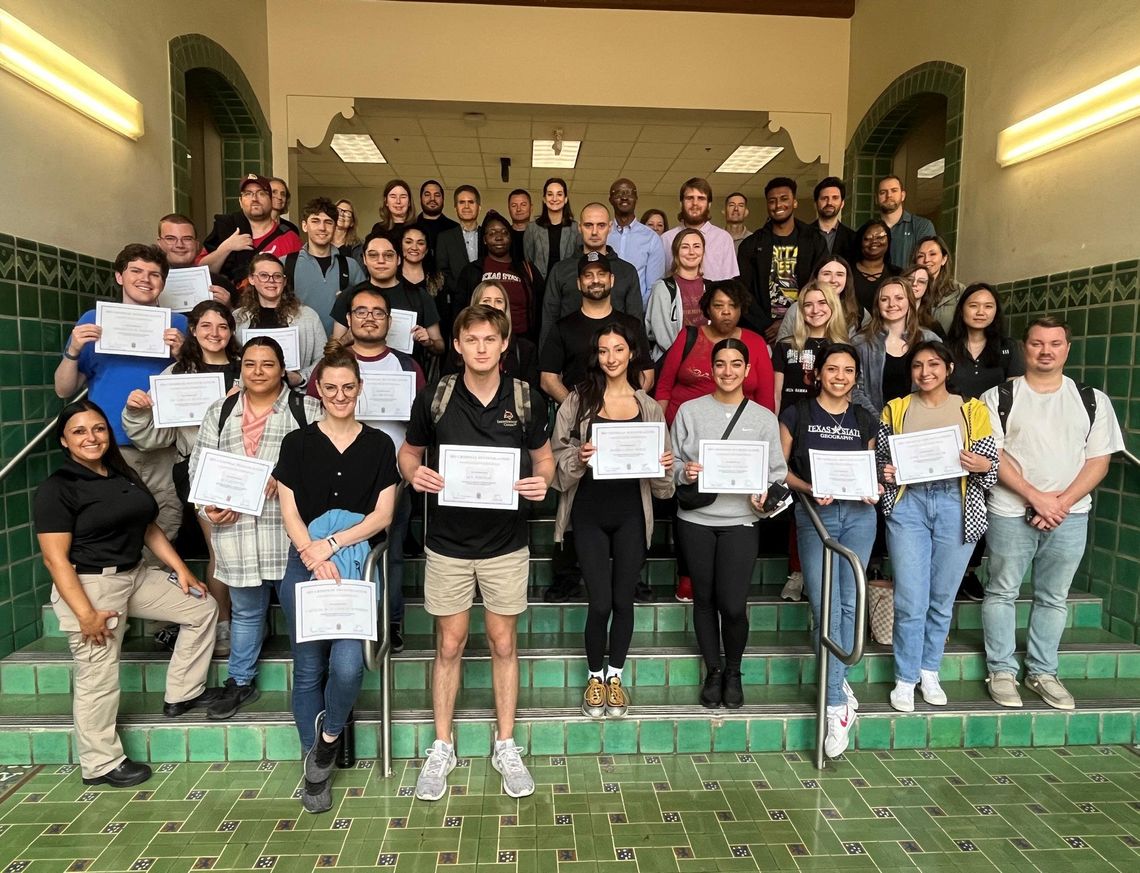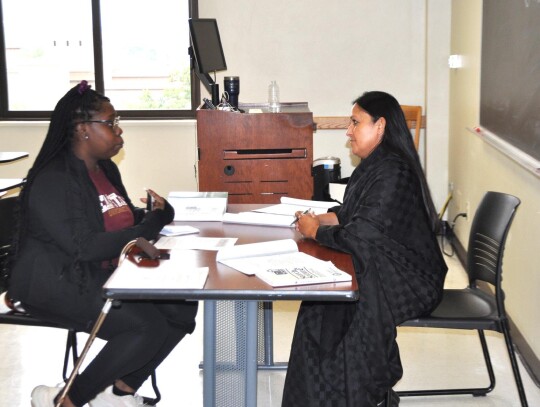The Internal Revenue Service-Criminal Investigation is hiring. For recruitment purposes, it hosted an all-day simulation event to give accounting students at Texas State University a taste of what Special Agent and Public Information Officer Mark Wilson called “the life in a day” of a special agent, a condensed version of what the job would entail.
Many “don’t understand that the IRS has a criminal investigation arm.
When you think of the IRS you usually think of taxes, value taxes, April 15 and people auditing you,” Assistant Special Agent in Charge of the Houston Field Office Rodrick J. Benton said.
According to Benton, the IRS-CI is much more than that. “We’re 1811s. We carry firearms. We conduct arrests and search warrants. We operate in the same manner as the FBI, the DEA and the ATF; They’re our partners. We work with them hand in hand.”
Benton said the majority of their investigations, 75 percent, do involve taxes but the other 25 percent are drug and financial fraud investigations.
Benton said the reason that they went to Texas State University was as an outreach program, meant to inform students about the agency and let them know they are hiring.
“It’s not one of the greater known agencies,” Public Affairs Officer Christian Venhuizen said.
Venhuizen noted that is the principle reason for his position and for the on-campus simulation programs–to spread the word about what the IRS-CI is and what they do.
All of the simulations involve “people who willfully defeat or defraud the criminal tax system or do other financial crimes,” Wilson said.
One of the scenarios was a tax professional preparing false tax returns in which they are getting money under the table to inflate the return.
Another one was a business owner that has a bar and is skimming from the register and has two sets of books.
“If you’re going to skim from your business you have to keep a second set of books, and you’re going to be doing even more work because if you don’t, eventually you take so much money you can’t pay the bills,” Wilson said.
The third scenario was a non-profit owner who was not reporting all of the charitable contributions.
During the training, the students would tail the suspect, compile information to get a warrant and conduct a search.
Later, during the surveillance part of the simulation, Wilson pointed out that it isn’t done by one person as shown in the movies. There may be one person in the lead and another behind and then the person tailing might trade with another agent–it’s a collaborative effort.
“Financial crimes do not pay.” Wilson said. “A lot of the time people don’t think that it could end in them going to prison. They think about extra money, but they don’t think about their freedom being taken away.” Wilson said that usually the suspects that they are pursuing are narcissistic types that don’t think the agents are smart enough to catch them.
He said that alone they might not be, but they work as a group, so all perpetrators will get caught eventually.
Wilson said as far as candidate qualifications they are primarily looking for accounting majors, and if they aren’t majors, they would need at least 15 accounting hours.
Wilson said this is necessary because their job entails following the money. This isn’t the only reason they hire people with an accounting degree or similar.
“The job is very cerebral,” Venhuizen said. “They want that analytical thought process. The FBI does the same thing. We go after the same recruits. They’re just larger than we are, with more notoriety.” Venhuizen joked that despite being a smaller agency, their logo “looks cooler.”
According to Wilson, the most intriguing aspect is the way in which some of the suspects live.
In one instance, he and a colleague were conducting an interview when, to their surprise, a Savannah cat jumped onto the table. The suspects were keeping it as a pet. At this point, they had to cut the interview short, as his colleague was not enthused about the idea of becoming the wild cat's next meal.
Once hired the recruits would need to go through “six and a half months of basic training at the Federal Law Enforcement Training Center in Georgia,” Wilson said. “It’s a combination of a lot of classwork and technique learning. The first 12 weeks are learning about law enforcement and civil rights. Learning when you can stop and search somebody, the constitution and stuff like that. The next 16 or 18 weeks are how to be a financial investigator.”
Wilson wanted to impart that is only the initial training. He, himself, is an on the job instructor and will oversee new agents during their first couple of years. Wilson encourages that new agents learn from other agents as well so that they get a diverse training experience.
“It’s a cool job, and it pays well,” Wilson said. According to information provided at the training event, special agents get many benefits which include, 11 paid holidays, 13 vacation days, sick leave, flexible locations, health and life insurance and Federal Law Enforcement retirement. For more information on the special agent position and to apply go to https:// go.usa.gov/xeRXS. They are also hiring IT and forensic, and other professional staff positions.








